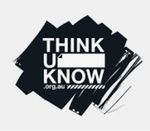March 2021 - Abbey College, Ramsey
←
→
Page content transcription
If your browser does not render page correctly, please read the page content below
March 2021
Welcome to our March Newsletter, which we hope continues to contain helpful information and advice for you to share with
your family. We would like to reiterate, once again that our newsletters are designed to inform Parents and Carers ofboth
Primary and Secondary school children, and therefore trust your personal judgement on what you feel will be relevant
information to share with your child.
KOOTH: Digital Mental Health Support Service
Kooth is a digital mental health support service for young people aged 11 to 25
where they can access online support from a team of experienced counsellors.
Access is free and there are a range of tools, such as activities and moderated
chat forums that can be used to enhance young people’s mental health and wellbeing.
Please click on the link and see how Kooth can help, support and advise:
www.kooth.com/
Activity Toolkit
Thinkuknow is an educational programme from NCA-CEOP, a UK organisation which protects
children both online and offline. A toolkit has been produced with 15 activities designed for
young people aged 11 to 18. Each activity gets young people thinking and talking about key
issues relating to sex, relationships and the internet and the delivery of key safety messages
It also encourages them to return to the Thinkuknow website in their own time.
Please click on the link below to find out more:
https://www.thinkuknow.co.uk/professionals/resources/thinkuknow-toolkit/
Home Alone!!
When can I leave my child home alone? We thought it
would be helpful to cover the legislation surrounding leaving children and
young people, home alone.
The law on leaving your child on their own
The law does not state an age when you can leave a child on their own, but it’s an offence to leave a child alone if it
places them at risk. The NSPCC state:
• Children under 12 are rarely mature enough to be left alone for a long periods of time
• Children under 16 should not be left alone overnight
• Babies, toddlers and very young children should never be left alone
Visit the NSPCC’s website below. There you will find many helpful tools, tips and advice to help you decide if your
child is ready to be left alone, how to prepare them & keep them safe while home alone.
National Society for the Prevention of Cruelty to Children (NSPCC)
Call: 101
Telephone: 18001 101 #SaferCambs
Visit: cambs.police.uk
Follow: CambsCops
Subscribe: eCops.org.ukMarch 2021 County Lines and Child Criminal Exploitation What is County Lines? County lines is the movement of illegal drugs and, or money from one area to another. Commonly, criminal gangs will persuade, coerce or force children and young people to store drugs and money to transport around the country to other drug dealers. This is why it is also known as Child Criminal exploitation or CCE, gangs ‘exploit’. The ‘County Line’ is the mobile phone line that is used to take the drug orders. It is against the law and is recognised as a form of child abuse. How it works County Line gangs are usually highly organised and will work with a hierarchy of gang leaders. Each gang member plays a specific role within the structure but ultimately it will be the lower level members (usually vulnerable children) who will be expected to transport the drugs across counties and deliver to the dealers. Click on the following link. Parents against child exploitation (PACE) explains County Lines in more depth: https://paceuk.info/criminal-exploitation/what-is-county-lines/ Recruitment and Grooming Within the gang structure there are older members. Their job role will include identifying and befriending vulnerable children. A child or young person who is ‘recruited’ then becomes exploited and manipulated until they are so entrenched and trapped it becomes nearly impossible for these victims to break free. This is also known as Grooming! Please visit the NSPCC website for information on Grooming. https://www.nspcc.org.uk/what-is-child-abuse/types-of-abuse/grooming/ Spotting the signs Here are some of the signs to look out for if you are worried or concerned about a child who might be involved in County Lines activity or you may suspect are being Groomed. • Persistent missing from home or school • Significant decline in school performance • Unexplained possession of money, new clothes or mobile phones • Being secretive and vague about their whereabouts • Change of behaviour and friendship groups • Unexplained injuries and refusal of medical help. This list is not exhaustive and further information regarding indicators and risk can be found on the PACE UK website via this link https://paceuk.info/criminal-exploitation/indicators-and-risks-of-criminal-exploitation/ Support and advice is out there!! If you are concerned or worried about a child – please report! Police: 999 in an emergency, 101 non emergency Crimestoppers: 0800 555 111 www.crimestoppers-uk.org Childline: 0800 1111 www.childline.org.uk Fearless.org Fearless.org Call: 101 Telephone: 18001 101 Visit: cambs.police.uk #SaferCambs Follow: CambsCops Subscribe: eCops.org.uk
March 2021
Internet Safety & Watching Videos:
Children love to watch videos and YouTube is always a firm favourite! Especially
during lockdown restrictions. From animals doing funny things, to slime-making
and game-tutorials, the internet has lots of fun videos for children of all ages to
enjoy. But sometimes children can be exposed to videos that are not meant for
them. The amount and availability of content online means that children may
see something inappropriate.
To understand what type of content might not be suitable and advice on how to
help your child watch safely, watch this short video guide. The internet
is a public and open space where anyone can post and share content. This can
be fun and entertaining for children, but it does mean your child may see something that is intended for adults.
Find out what to do if you're worried your child might see something inappropriate online or what to do if they
already have.
YouTube Kids is a safer way for children to explore their interests. You can find more information about this on
YouTube: what parents need to know .
Remember, primary-age children should be supervised at all times when online.
On line gaming
Online games are social activities, and most have features that allow
young people to chat with others whilst they play. For information about
the positives of gaming, the risks of ‘in-game chat’ and measures you
can take to help protect your child, watch this short video:
In-game chat: a guide for parents and carers .
Tip: The PEGI (Pan European Game Information) rating system can be a useful tool to help you decide what online
games are appropriate for your child.
For more information on the PEGI system and other factors to consider before deciding what’s suitable, read:
Gaming: what's appropriate for your child
Gaming is popular with both children and adults and can help to cure that lockdown boredom! If your child is gaming,
you may have some questions about how to keep them safer. If so, check out:
gaming: what parents need to know.
For a guide on the apps, sites and games your child might enjoy, visit: Net Aware.
We would love to hear your feedback & comments.
You can contact the team via our email
Schools&CYP@cambs.pnn.police.uk
Call: 101
Telephone: 18001 101
Visit: cambs.police.uk #SaferCambs
Follow: CambsCops
Subscribe: eCops.org.ukYou can also read



























































